20 April 2023
Energising e-mobility in African cities
Key learnings from the Transformative Urban Mobility Initiative city-to-city exchange

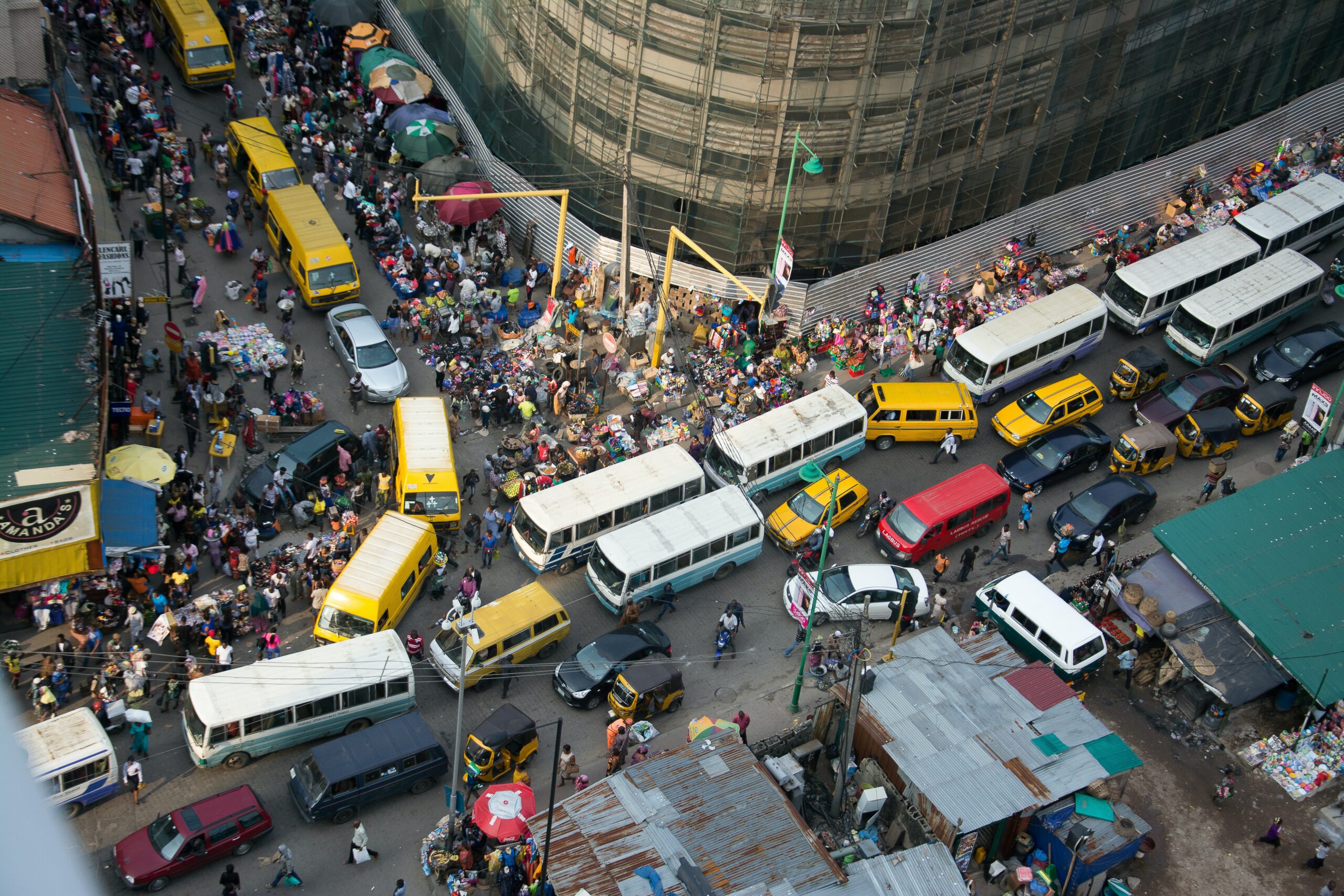

In October 2022, the Transformative Urban Mobility Initiative (TUMI) E-bus Mission African City Network came together in-person, after months of virtual discussion, at the City Network’s Learning Exchange on finance, business models and partnerships for e-bus adoption. The session offered Network Cities and guests an opportunity to unpack some of the challenges and opportunities facing adoption of e-buses in Africa.
ICLEI Africa, Transport for Cairo, C40 Cities, CoM SSA, BASIGO, ROAM and TES Network covered a range of topics including energy versus mobility transition, innovative financing, funding and procurement models, the importance of business models, and how to manage risk and access finance. City transport officers and practitioners participated actively by sharing their context-specific experiences and concerns, and expressing their appreciation and support for further engagements of this kind.
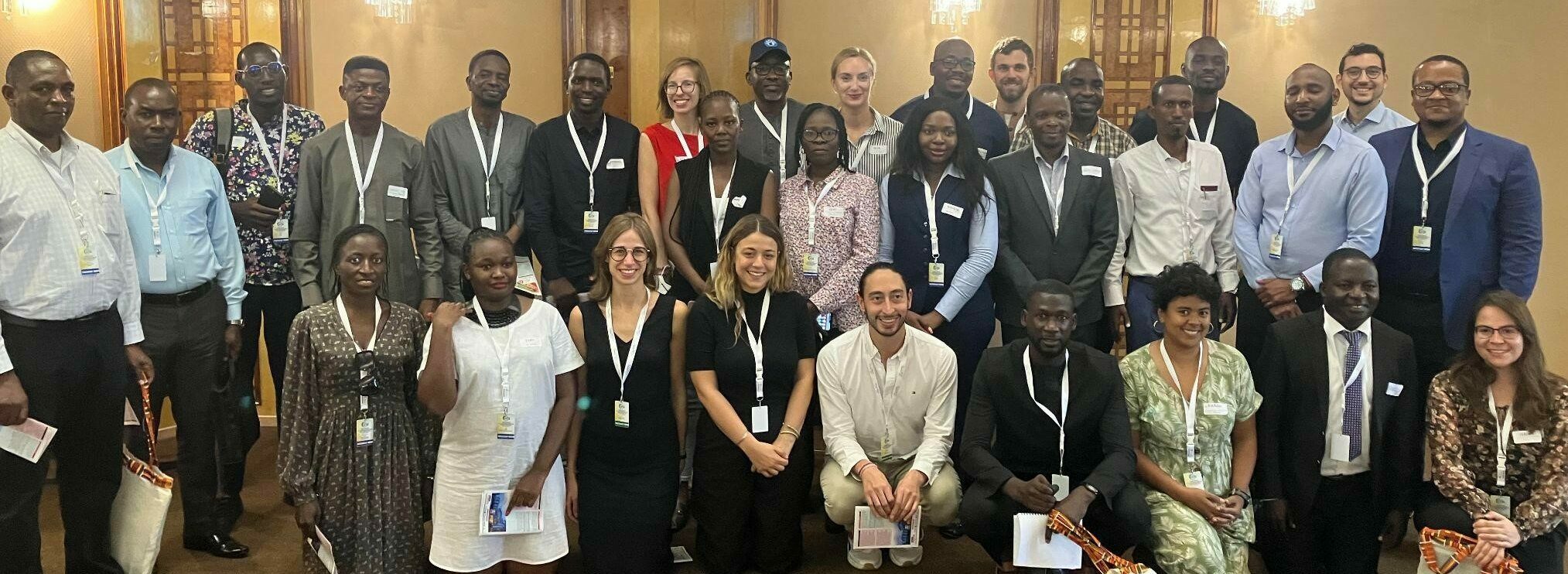
Seven key learnings emerged from this exchange:
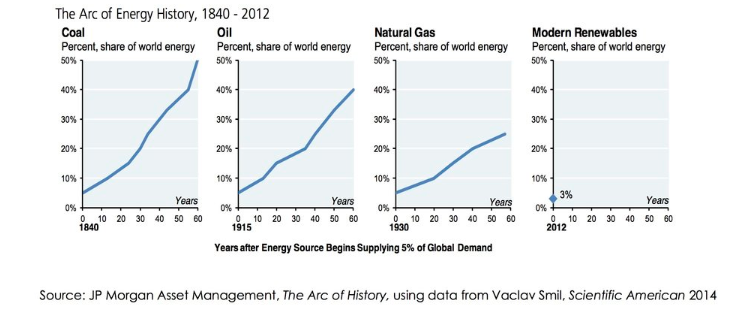
1. The energy and transport transition need to happen simultaneously.
Previous energy transitions from wood to coal, coal to oil or oil to gas have taken an average of 50 years [1]. There is a general concern that the transition to renewables could take just as long. As transport sector officials and practitioners, we cannot wait for the energy transition to become green before transitioning the transport sector. We need to work together now, concurrently to the energy transition, toward a transport sector that is more sustainable, safe and just.
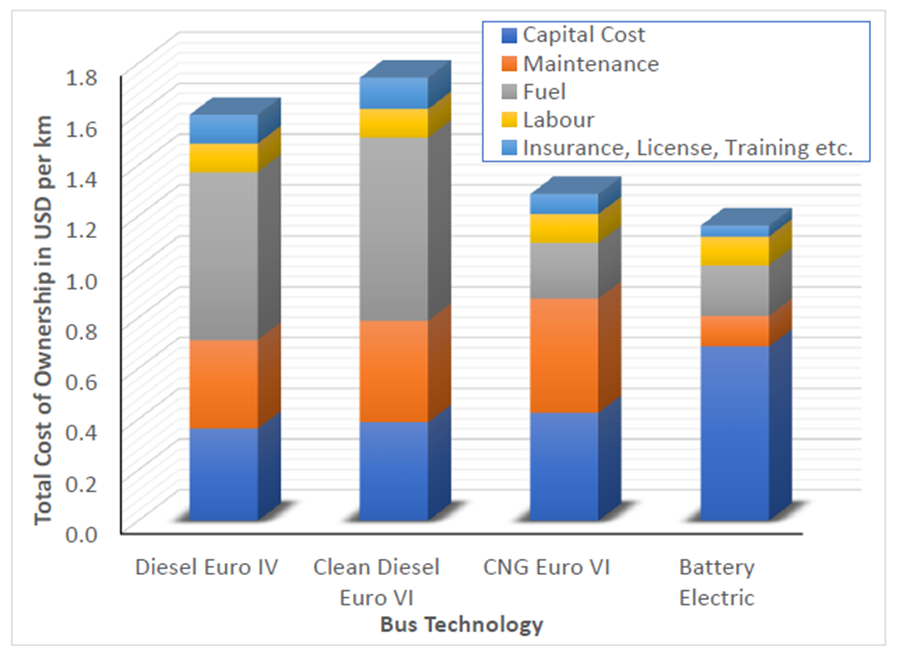
2. E-buses are expensive to buy but cheap to run
One of the biggest barriers for e-bus transition is the higher upfront costs of adoption. However, the total cost comparison over the life cycle of e-buses has been shown to be cheaper than Compressed Natural Gas (CNG) vehicles. The figure (right) shows the total cost of ownership for 18m buses from a Dar Rapid Transit Study undertaken in Dar es Salaam. This is supported by a recent study (2021) that suggests the lifetime cost of an internal combustion engine bus fleet (like diesel and gasoline) is 35% higher than electric bus fleets in Africa.[2]
3. Sharing risk makes financing and funding for e-bus fleets more accessible
When traditional bus fleet business models are used to procure e-bus fleets all the risk is held by the owners and operators, who are not well-equipped to manage these risks. Using innovative business models, that include unbundling, shares the risks with third parties such as manufacturers and fleet providers – as explained in the slides below by C40 Cities. There are various options which include outsourcing all aspects of bus fleets (transport-as-a-service), outsourcing vehicles, batteries and charging infrastructure (fleet-as-a-service), outsourcing batteries only (battery-as-a-service) or charging infrastructure only (charging-as-a-service).
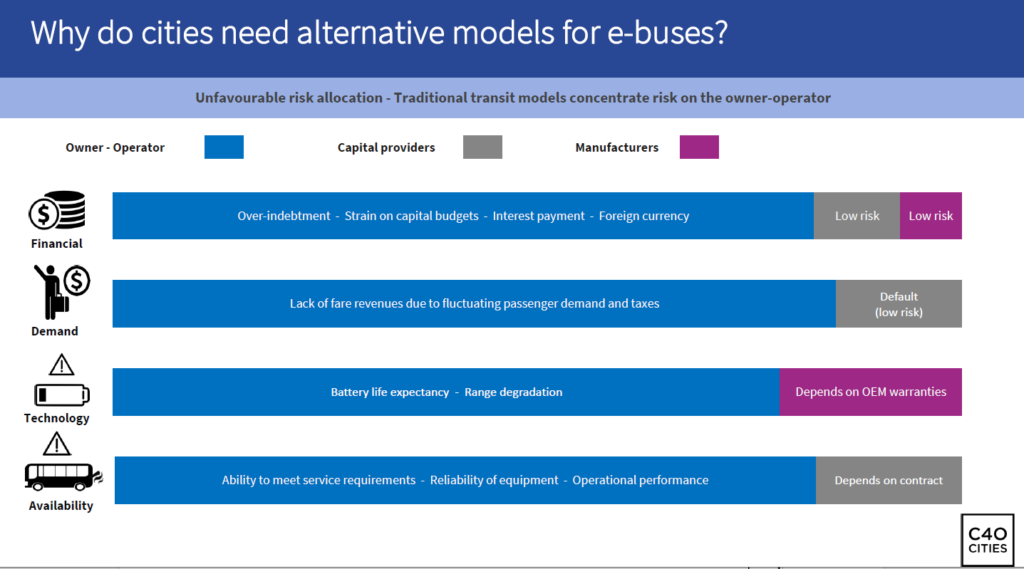
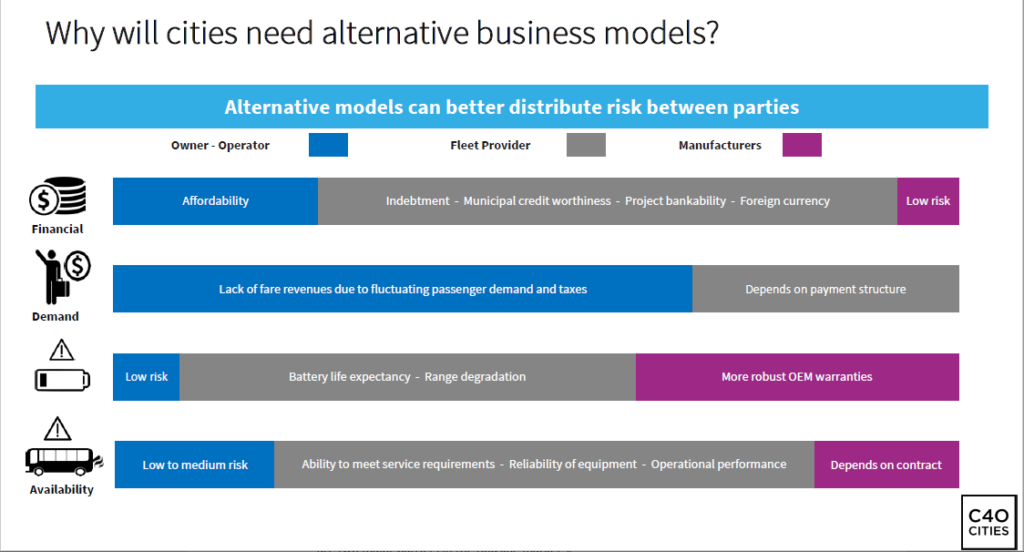
Wilberforce Chege from C40 Cities presented on sharing risk using an unbundled business model.
4. African cities should explore regional pooling for mass transport to enhance scalability
The idea of pooling resources to create economies of scale is not new to the development world or even to transportation. There are various studies that advocate for the pooling of resources, for example in freight transportation, that could reduce CO2 emissions while improving economic viability (Mrabti et al 2021)[3]. However, in terms of e-buses, what if there was regional pooling? In Africa there aren’t yet any major e-bus manufacturers that build, supply or maintain parts and most African countries are importing. A hub could be set up in East Africa, for example, where e-bus adaption is escalating faster than other regions with Nairobi, Dar es Salam and Kampala all either already piloting e-buses or setting up pilots. In addition, the region could then collectively apply for climate funding to scale up manufacturing and maintenance to support the growing demand for e-buses and other electric vehicles. Could this be the catalyst for Africa’s carbon neutral transport transition?
5. Collaboration across public and private actors and sectors is essential
Exploring alternative business models and pooling resources is only possible with collaboration beyond government departments, to include private sector actors across various urban sectors. This increases available opportunities and helps to share the risk – and the rewards – more holistically. Collaboration is also needed between cities and Development Finance Institutions (DFI). By aligning the priorities and needs of cities with the intentions of DFI’s, both parties can better understand each other’s needs right from the beginning of the project and work together towards a common objective.
6. Local targets and goals must align with national priorities to enable successful uptake and implementation
The city-to-city network discussions revealed that the cities whose goals, targets and ambitions to enable the e-bus transition, are supported by national priorities are further along the road to e-bus implementation. This is showcased in the case of Rwanda, where H.E. President Paul Kagame announced in 2019 the country’s plan to shift to electric vehicles as part of its climate action plan. Following this, a number of regulations were implemented that for example imposed fines for non compliance to emission standards, cut import taxes on e-mobility parts, reduced electric tariffs at charging stations, and included charging stations (and other e-mobility infrastructure) into local and regional planning. These regulations have allowed Kigali to fully embrace e-mobility transitions and take huge strides towards piloting and implementing e-mobility infrastructure.
7. City-to-city sharing and learning is crucial
It is not necessary to reinvent the wheel in every African city – but rather to learn from and share the experiences of other cities on the continent. The Network Cities reiterated this need for and interest in more city-to-city sharing and learning, to continue to support and grow from each other’s triumphs and errors on Africa’s journey toward sustainable mobility.
Where to from here?
With the right support, e-mobility holds much potential in African cities. While this session was the concluding engagement of this phase of the TUMI E-bus Mission African Cities Network, we hope it has served to capacitate, inspire and facilitate stronger and ever-expanding future connections across and within African cities looking to transition their transport sectors.
For further information on engagements, training opportunities and resources please visit sustainablemobility.iclei.org/tumi-ebus-mission-city-network/
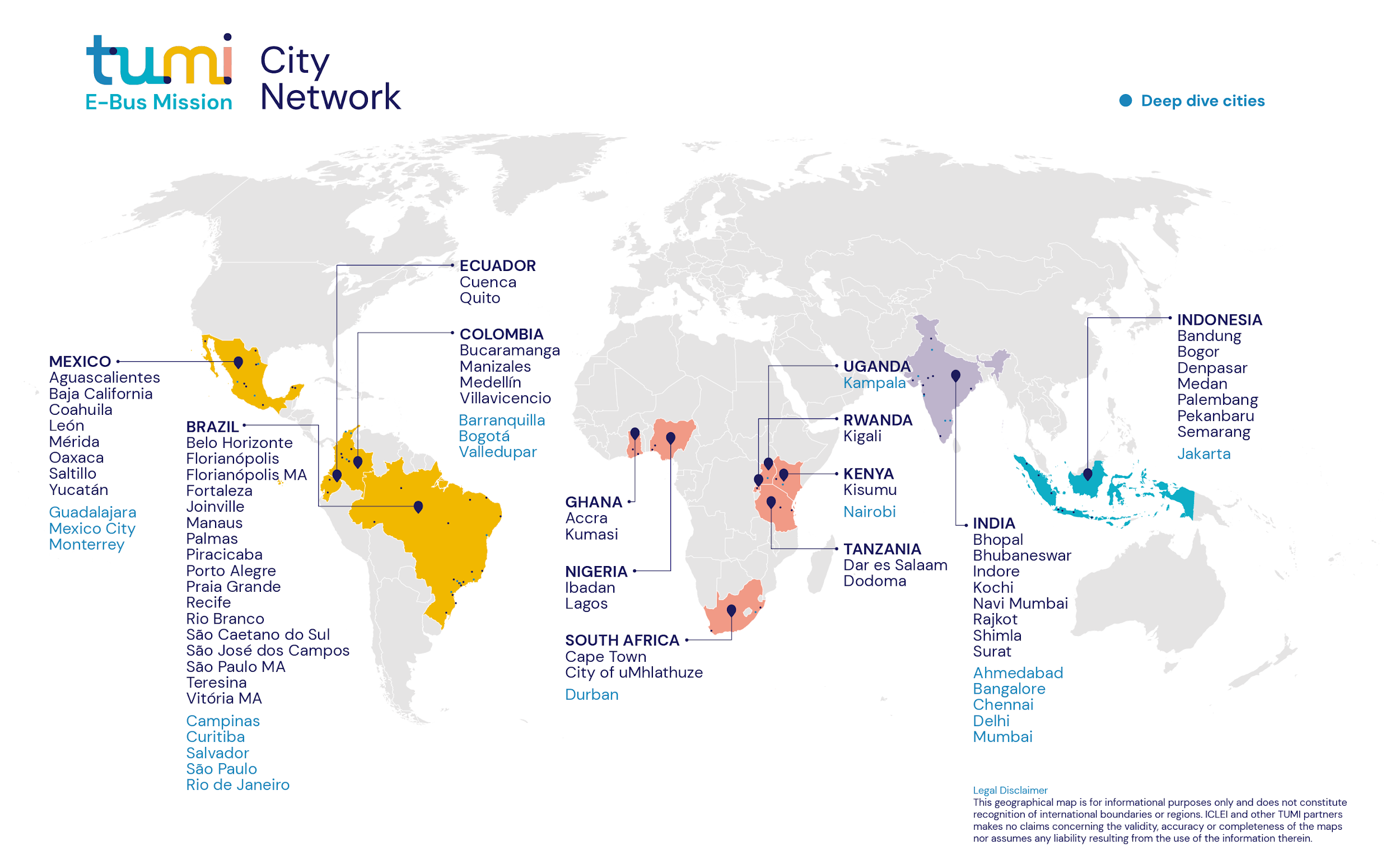
This TUMI E-bus Mission session was led by ICLEI Africa and supported by TUMI Partners GIZ, C40 Cities and ITDP. The city-to-city learning session was tailored for the TUMI E-bus Mission African City Network Members and Deep Dive Cities, and was attended by MobiliseYourCity Cities, TUMI Partners and other guests. This session was held as part of the week of Sustainable Mobility and Climate in Dakar, Senegal hosted by CODATU Association, CETUD and the Climate Chance Association. The TUMI E-Bus Mission City Network is the first learning network of cities at a global scale dedicated to accelerating the transition toward e-bus fleets within public transport systems in the Global South.
References:


